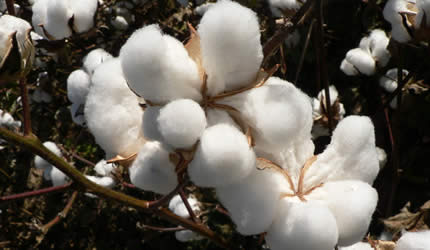Govt to halt cotton decline

 Business Reporter
Business Reporter
GOVERNMENT will probe factors behind the free fall in cotton production in order to formulate policy that will ensure production of white gold reverts to their glory days, Finance Minister Patrick Chinamasa has said.
He made the remarks during a press briefing in Harare to announce Government’s US$161 million agriculture input support programme for crop and livestock in the 2013-2014 season.
The minister said Government was not happy about what is happening in cotton production where traditional cotton growers are migrating to other crops such as tobacco, which are offering better returns to farmers.
“We are most unhappy about what is happening in the cotton industry.
“The Ministry of Agriculture, Mechanisation and Irrigation Development is going to look into that issue. We are very unhappy that traditional cotton growers are migrating from cotton to other crops such as tobacco.
“This unsatisfactory development is something that we should not accept,” he said.
Minister Chinamasa said Government will not allow production of cotton to continue on a free fall because the crop was critical for national industrialisation and offered many opportunities along the cotton value chain.
“We are going to see what interventions Government can make into cotton production, we will look at each value chain to see who are the players and what are they doing, who is abusing who? The necessary interventions will be made,” Minister Chinamasa said.
Production of the white is in serious decline at a time when the country is desperate to revive the textile and clothing industry, which is under threat of collapse.
Earlier forecasts had projected that the country will produce 250 000 tonnes this season from 283 000 tonnes last year.
Over the years, contractors have scaled down funding for cotton production due to rampant side-marketing by farmers with contractors losing out to fly-by night buyers who entice contracted cotton farmers with better prices.
At its peak Zimbabwe achieved an all time cotton output of 353 000 tonnes in 2000,which fell to 283 000 tonnes in 2012 from 422 000 hectares, earning the country over US$200 million.
Apart from the fact that cotton earns the country a significant amount in foreign exchange the white gold is pivotal to Zimbabwe’s employment matrix considering that more than 200 000 small scale families depend on the crop.
Further, its importance stems from the centrality of agriculture to the economy, which used to account for about 30 percent of GDP and half of foreign earnings in the mid 1990s, but now accounts for 16 percent of GDP.
Cotton Ginners Association director general Mr Godfrey Buka was quoted in local media as saying the decline in output was a direct result of bad weather and to an extent the migration of some of the farmers to other crops.
However, while the decline has been attributed to reduced funding support by contractors and effects of bad weather other producers such as Zambia, Mozambique, Malawi and Uganda have also recorded falling output.
This has been partly because farmers have become disenfranchised due to low prices as merchants follow international cotton prices, which validates Government plans to subsidise input manufacturers to lower cost of production.
Lower cost of production will make prices offered by merchants more attractive to growers.











Comments